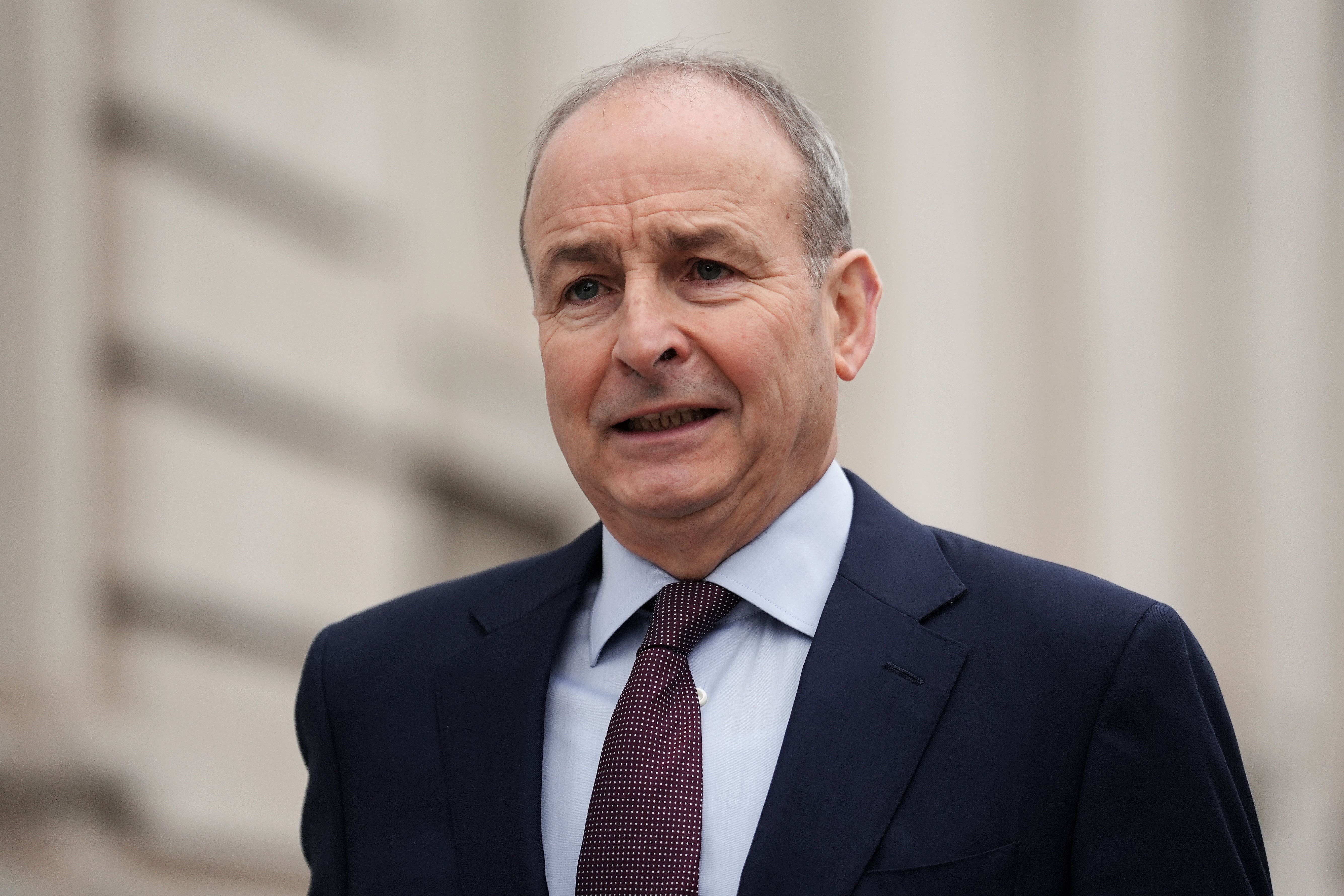Ireland to ask ICJ to broaden interpretation of genocide in Israel case
The Irish Government also approved an intervention in a case against Myanmar.

Your support helps us to tell the story
From reproductive rights to climate change to Big Tech, The Independent is on the ground when the story is developing. Whether it's investigating the financials of Elon Musk's pro-Trump PAC or producing our latest documentary, 'The A Word', which shines a light on the American women fighting for reproductive rights, we know how important it is to parse out the facts from the messaging.
At such a critical moment in US history, we need reporters on the ground. Your donation allows us to keep sending journalists to speak to both sides of the story.
The Independent is trusted by Americans across the entire political spectrum. And unlike many other quality news outlets, we choose not to lock Americans out of our reporting and analysis with paywalls. We believe quality journalism should be available to everyone, paid for by those who can afford it.
Your support makes all the difference.Ireland will formally intervene in South Africa’s genocide case against Israel at the International Court of Justice (ICJ) this month.
The move to file an intervention at the UN’s top court at The Hague will happen later this month, and comes after Government approval of the measure on Wednesday.
Ireland will be asking the ICJ to broaden its interpretation of what constitutes genocide.
The Irish Government also approved an intervention in The Gambia’s case against Myanmar, also under the Genocide Convention.
We are concerned that a very narrow interpretation of what constitutes genocide leads to a culture of impunity in which the protection of civilians is minimised
The country’s deputy premier and foreign affairs minister Micheal Martin said: “There has been a collective punishment of the Palestinian people through the intent and impact of military actions of Israel in Gaza, leaving 44,000 dead and millions of civilians displaced.
“By legally intervening in South Africa’s case, Ireland will be asking the ICJ to broaden its interpretation of what constitutes the commission of genocide by a State.”
Speaking after a Cabinet meeting, Mr Martin added: “We are concerned that a very narrow interpretation of what constitutes genocide leads to a culture of impunity in which the protection of civilians is minimised.
“Ireland’s view of the convention is broader and prioritises the protection of civilian life – as a committed supporter of the convention, the Government will promote that interpretation in its intervention in this case.
“Intervening in both cases demonstrates the consistency of Ireland’s approach to the interpretation and application of the Genocide Convention.”
Executive director of Amnesty Ireland Stephen Bowen said Ireland’s intervention offered a “glimmer of hope”, but said “we demand more”.
Ireland can do more, and it can do that in concert with others
“The self-imposed powerlessness of states must end,” he said.
“Those like Ireland who have called for a ceasefire must join with other like-minded states to create this common platform to end the genocide.
“They must be resolute; they must be relentless; they must be loud, clear, visible. This is genocide. This must stop.
“We again call for an immediate ceasefire. States must be compelled to stop the transfer of weapons to Israel, and Israel’s allies must exert their pressure for full and unimpeded access for life-saving food and supplies with immediate effect.
“Every effort must be made to achieve these measures now, and certainly before Christmas. Ireland must use its leverage to full effect when a people are being starved by a state-induced famine in the midst of a genocide.
“Ireland can do more, and it can do that in concert with others – visibly, firmly, and proudly. History demands it of us.”